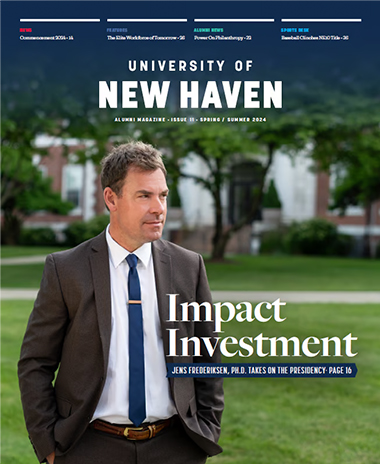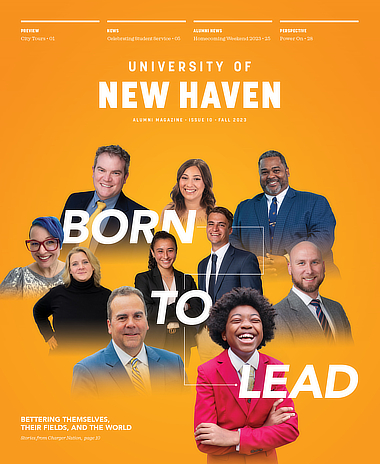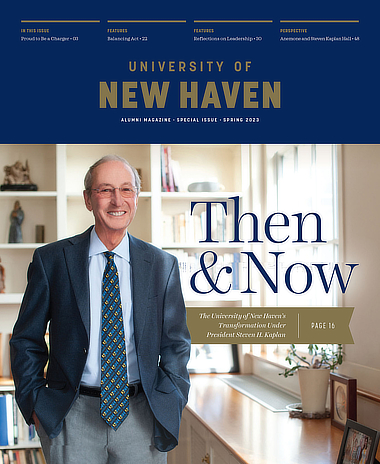This special edition shines a spotlight on the heart of this university – student outcomes. Within these pages, you will get a glimpse of the work that our students do, the dedication of our faculty and staff, and how the education and experiences our students attain here are creating brighter futures for them, their families, their communities, and the world.
Read MoreCurrent Issue
Summer 2025 Alumni Magazine: The Global Issue
This special edition spotlights the University’s ongoing commitment to expanding our international community; cultivating the elite global workforce of tomorrow; and illuminating the path forward to a better, brighter future for all.
Issue HighlightsPast Issues
This special edition spotlights our seventh president, Jens Frederiksen, Ph.D., and his plans to usher in a new era for the University of New Haven.
Read MoreLeadership isn’t always about title or position. If we know what to look for, we can find examples of leadership in many forms across the University community in our students, faculty, staff, alumni, and friends. Read more about some of these special individuals, as well as Dr. Zenger’s own perspective on leadership, in this issue.
Read MoreIn this special issue, we celebrate Dr. Steven H. Kaplan and his nearly 20 years of dedicated service to the University. Unique to this issue are stories highlighting Dr. Kaplan’s visionary leadership as president and chancellor, guiding the University through its most prosperous period in our rich history.
Read More


